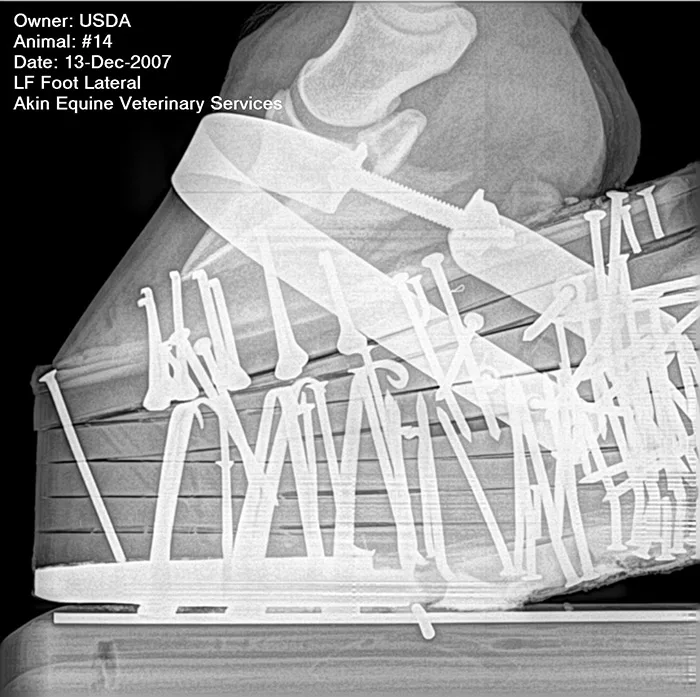American Farriers Journal
American Farriers Journal is the “hands-on” magazine for professional farriers, equine veterinarians and horse care product and service buyers.

Some 49 nails were used to hold the pads together on this Tennessee Walking Horse. Equine veterinarian Tracy Turner says this is clearly excessive when you look at how the nail locations were used to add weight in the heel area. While the Horse Protection Act prohibits weights attached to the outside of the hoof wall, horseshoe or any portion of the pad, it is not clear whether this use actually constitutes a violation.
Many in the Tennessee Walking Horse (TWH) industry maintain less soring and pressure shoeing is taking place than in the past. Others aren’t so sure, citing evidence that indicates that the banned practices are still all too common among high-level horses.
Soring involves the use of caustic chemicals, chains and other irritants on the legs of TWH and other gaited breeds. This leads to severe pain and forces the well-accepted high-stepping gait.
Soring has been banned since 1970 under the Horse Protection Act (HPA) that is enforced by the U.S. Department of Agriculture (USDA.) It includes, but is not limited to:
While many in the industry believe that trainers are responsible for most of the illegal practices, even surveyed farriers who deal with TWHs believe shoers are doing a portion…